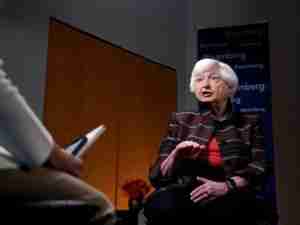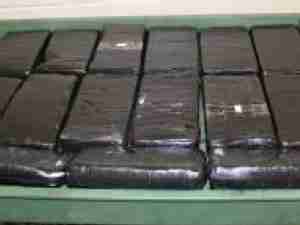US to announce trade enforcement action linked to India
By: Reuters | Feb 10 2014 at 01:27 PM | International Trade
The United States will announce a trade enforcement action linked to India, potentially dealing another blow to bilateral relations damaged in December by the arrest and strip-search of an Indian consul.
It was not clear what the action related to, but the U.S. government has come under growing pressure to react to perceived intellectual property rights abuses by Indian drug companies.
India is widely perceived by lawmakers and business groups in Washington as a serial trade offender, with U.S. companies unhappy about imports of everything from shrimp to steel pipes they say threaten U.S. jobs.
Both countries have taken disputes to the World Trade Organization on several occasions.
India’s trade minister, who met with the head of the U.S. Food and Drug Administration in New Delhi on Monday, said the USTR had not warned him about the action. The prime minister’s office and the foreign ministry also said the United States had not yet informed them.
The ten-day visit by FDA head Margaret Hamburg that started on Monday is the first high-level U.S. visit to India since the row over the arrest in New York of an Indian diplomat.
The arrest of Devyani Khobragade, accused of visa fraud and underpaying her maid, led to the cancellation of scheduled bilateral meetings.
On Friday, the U.S. Chamber of Commerce called for measures to reprimand India over intellectual property rights, a move that could help prevent Indian companies from producing cheap generic versions of medicines still under patent protection.
Also this week, the U.S. International Trade Commission has a hearing scheduled for Wednesday and Thursday to look into Indian trade and investment practices.
‘Pressure Tactic’
“This is nothing but a pressure tactic. As the U.S. is a big economy, they think they can arm-twist India to get concessions for entering into (India’s) expanding market, in manufacturing and retail,” said a senior official at India’s trade ministry who deals with international trade issues, when asked about the U.S. action against India.
India’s trade minister Anand Sharma said he talked to the FDA’s Hamburg on Monday about drug registration and quality, following a string of sanctions against Indian drugmaker Ranbaxy Laboratories Ltd. A source present at the meeting said the pending trade action was not discussed.
Another source said India complained to Hamburg that sanctions were imposed on Indian pharmaceutical companies before the companies were given the opportunity to make their case. Issues of access of Indian fruit and rice to the U.S. market were also discussed, the source said.
India is the biggest overseas source of medicines to the United States and is home to over 150 FDA-approved plants, including facilities run by global players. Pharmaceutical exports from India to the United States rose nearly 32 percent last year to $4.23 billion.
In a submission to the USTR, the Chamber of Commerce asked that India be classified as a Priority Foreign Country, a tag given to the worst offenders when it comes to protecting intellectual property and one that could trigger trade sanctions.
Other trade groups, including those representing the pharmaceutical and manufacturing industries, echoed the call for a tougher stance on India.
While Western companies see huge potential in India’s rapidly growing $13 billion drugs market, 90 percent of which is made up of generics, they worry that India is failing to recognise valuable medical innovation.
Among Big Pharma’s setbacks in the country, India in 2012 allowed local drugmaker Natco Pharma (NATP.NS) to sell cheaper copies of Bayer AG’s (BAYGn.DE) cancer drug Nexavar through the controversial mechanism of “compulsory licensing”.
India is already on the U.S. government’s Priority Watch List for countries whose practices on protecting intellectual property Washington believes should be monitored closely.
The United States and India have been trying to get their relations back on track after New Delhi blamed Washington for a “mini crisis” over the treatment of Khobragade.
India curbed privileges offered to U.S. diplomats in retaliation and asked Washington to withdraw a diplomat.
Khobragade left the United States in January after a complex deal in which her diplomatic status was switched to the United Nations, affording her a greater degree of immunity from prosecution. But U.S. authorities have so far refused to drop the charges against her. (Reuters)








